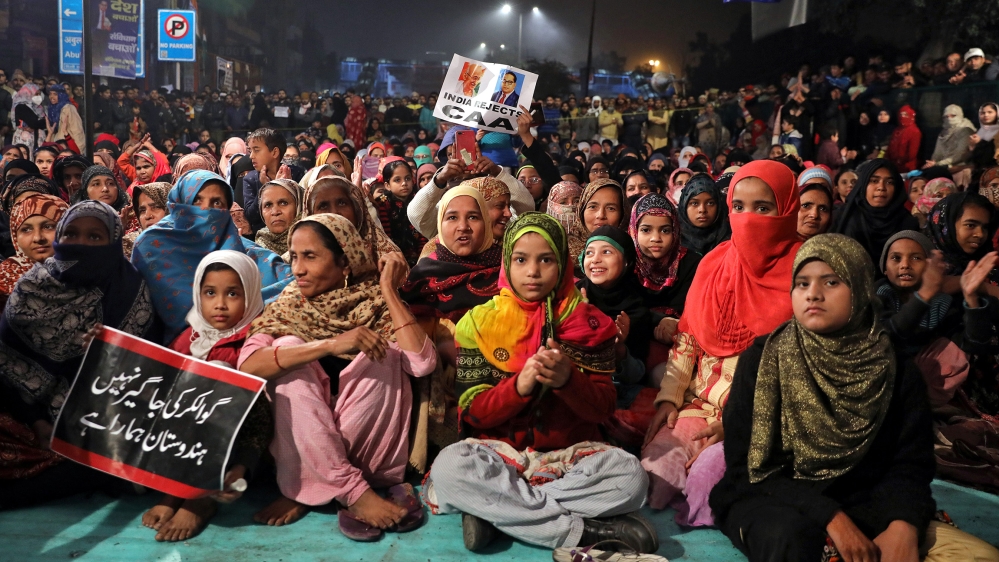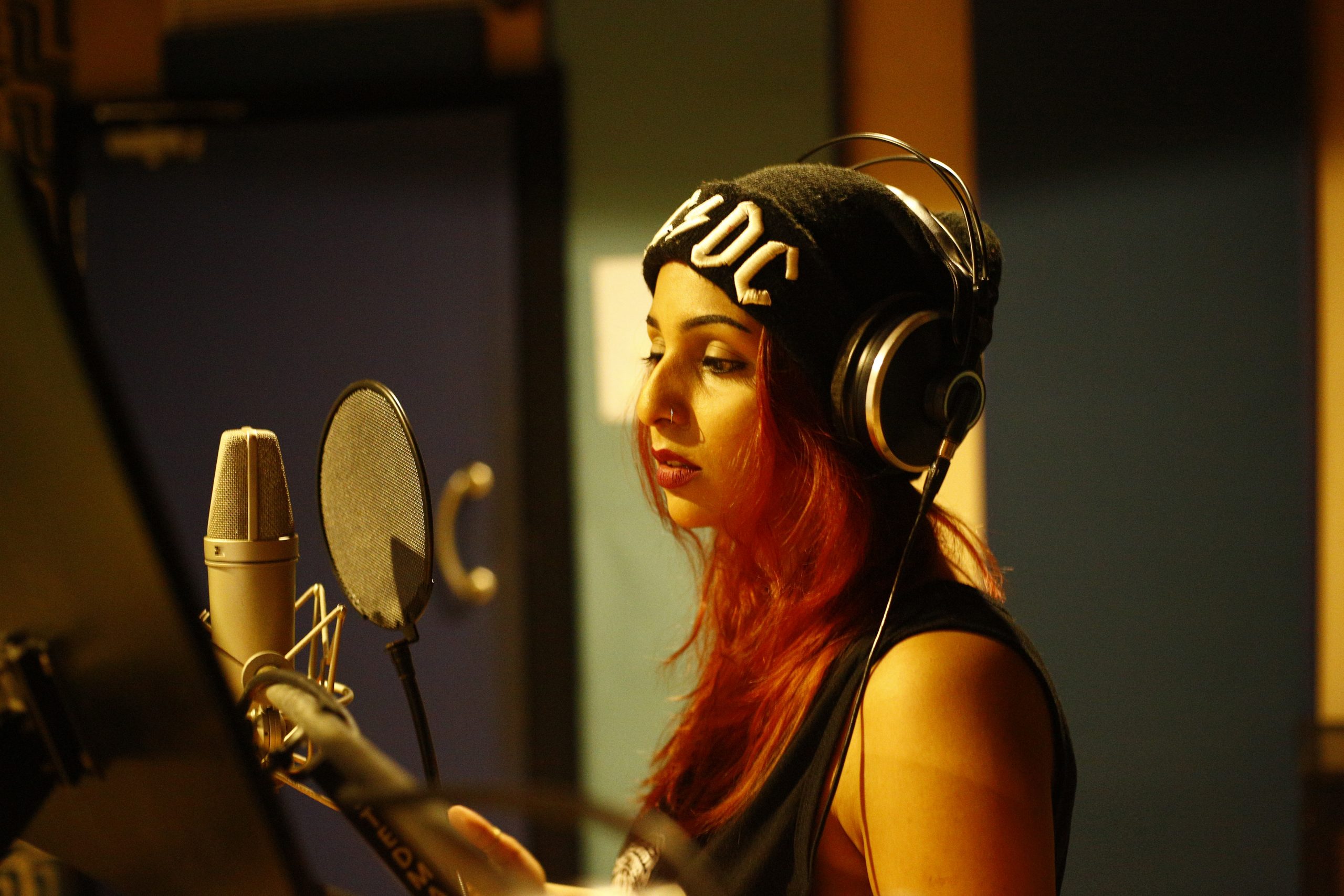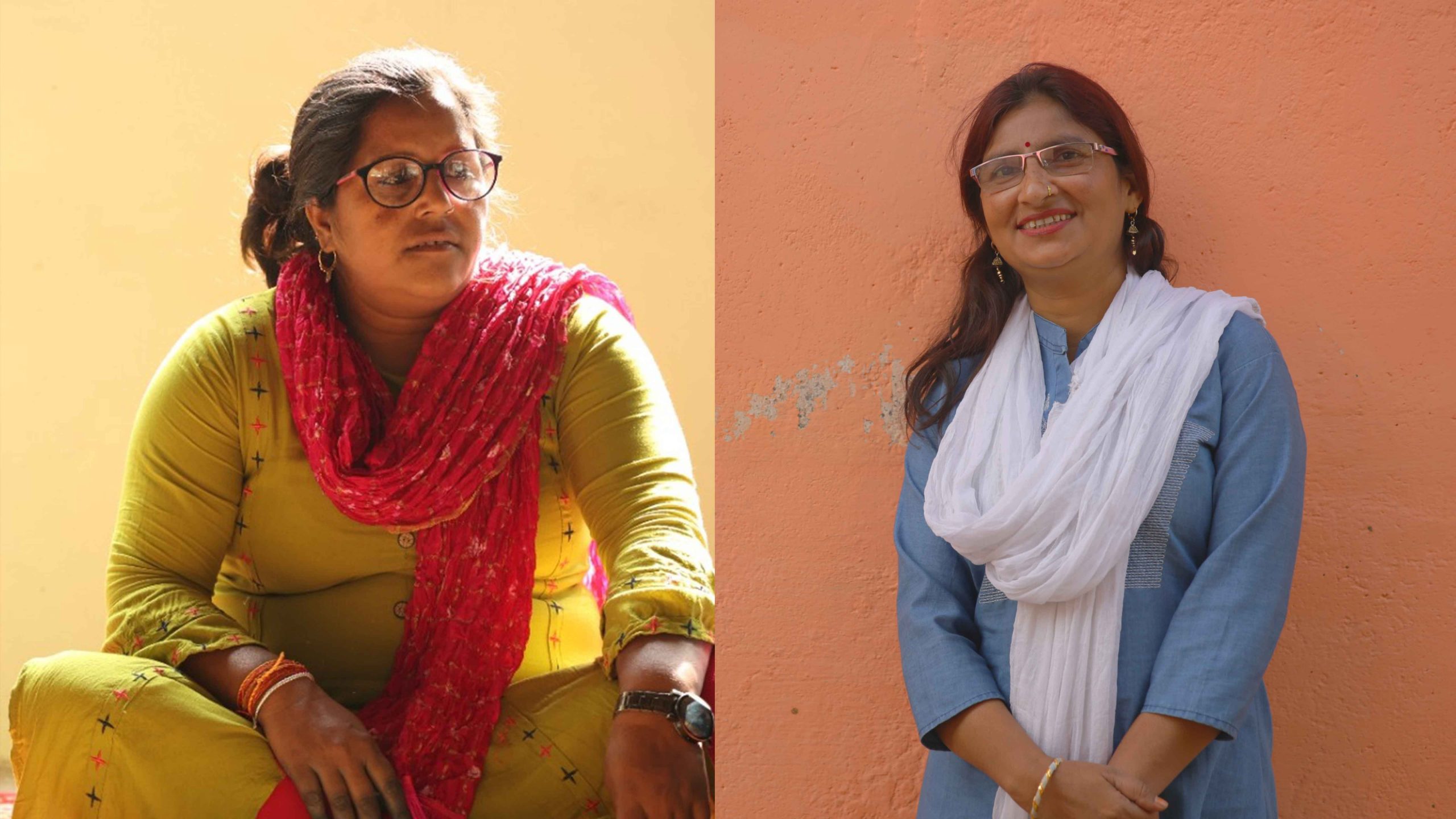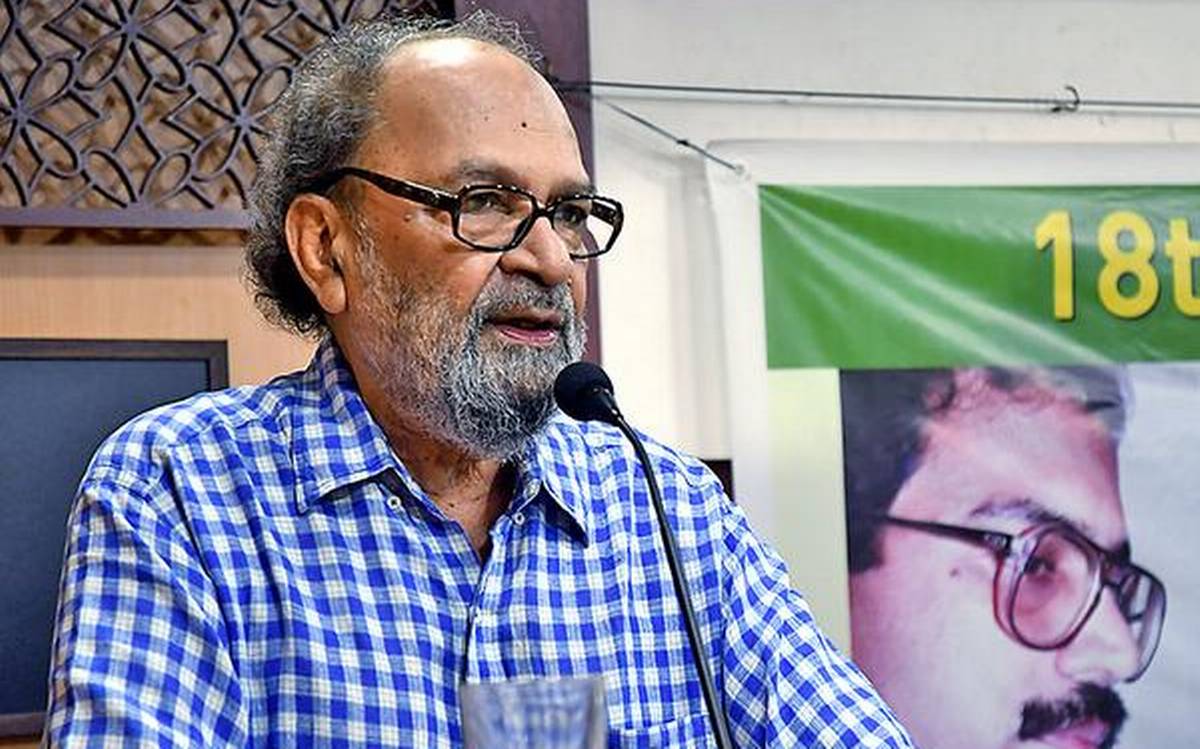Dr. Syeda Hameed On Why Shaheen Bagh Is A New Dawn For Feminism In India
- IWB Post
- February 6, 2020

‘Kuch nahi to kam se kam khwab-e-sahar dekha to hai, Jis taraf dekha na tha aabtak, udhar dekha to hai’ ‘Though elusive, yet we dare dream of the dawn, We never looked there, now we look for the morn’ – Jan Nisar Akhtar These couplets string something inside me as I scroll through the website of the Muslim Women Forum India or MWF. They resonate even more when Shaheen Bagh is all across our news and social media. And again, the language and flow of the poetry incline one to think of Muslim women, their dream of the dawn and if the morn is truly not too far away? Shaheen Bagh has become the symbol of resistance and has emerged as the coming of age of Muslim women. But the couplet still rings in rhythm, motivating all of us to look in a direction that was never seen before. To gaze out for a fresh start, a new hope and a new understanding of the role of the woman.
One of the founding members of the MWF is Dr. Syeda Hameed. A former member of the Planning Commission and the National Commission for Women, Dr. Syeda is a writer, activist, and educationist; awarded the Padma Shri in 2007, her illustrious work spreads across various spectrums. There is so much that one can learn and talk about with Dr. Syeda, but the current wave of political resistance that the Muslim women of Shaheen Bagh have started took up the largest part of our conversation. So did the perception versus true understanding of Islam, the role of women in peacekeeping, and the MWF.
Shaheen Bagh
In harrowing times, when questions are being raised on citizenship, the nation has in large parts stood up and lent its loud voice. The voice of the youth and women perhaps are the loudest and yet so endearing to hear and discover. The narrative is no longer about religion. Muslim women have not been sitting in Shaheen Bagh for an Islamic law or shariat. They are braving out the cold gloom for a national cause.
“Of course, Muslim women are going to be badly affected and this is for a Muslim cause but they are contesting and protesting from the ground of secularism. They are holding photographs of Babasaheb Ambedkar and they are talking about Hindu Muslim unity, they are doing multi-faith activities. It (the CAA, NRC, NPR) is really targeting the Muslims and women are always more indicted because they have to ensure that the machine keeps running even though whatever the privation is, that the children are fed, the household keeps on moving. The Muslims are being inflicted and affected but the instrument is a secular instrument and that is why people from across all communities have risen in support of it. And Muslim women at the head of it is something that has captured the imagination of the people and the media”, says Dr. Sayeda when asked about the protests at Shaheen Bagh.
The Sarita Vihar – Kalindi Kunj stretch has been blocked for over a month now and this has led to protests and petitions to reopen the road for the public’s convenience. So should the protestors relocate or is this the time more than ever to stay put at the site that has gained a huge significance?
“It’s a catch 22 question”, says Dr. Syeda, “because if they discontinue and go somewhere else they may lose their effectiveness, if they continue then it is causing a lot of inconveniences and people are beginning to complain. They could perhaps do one thing; they have blocked the whole road but there is the possibility of clearing half of it for the traffic to go like they are doing in Jamia. In Jamia, the protests are going on in a place called Gate no 7 but they have left one side free and the other side has been divided with some temporary contraptions, so the traffic can actually flow for that portion. To an extent, people are inconvenienced but it is not a complete bottleneck. Also, the protesters say that opening a part of the road could lead to some mischief-makers, say throwing stones at the traffic and put it as protestors doing it.”
There is no single leader of the protests at ShaheenBagh. Is this a strength or weakness, we ask Dr. Syeda? “It is a strength. There is a coordination committee and I think it is a strength because no one leader has emerged. The coordination committee also changes its contours from time to time. I keep hearing names so not having one iconic figure is I think an advantage.”
But as ShaheenBagh becomes a collective voice, bringing especially Muslim women out on the streets to civilly mark their dissent on a matter of national importance, it also reflects the glint of dawn that Dr. Syeda’s decades of work as a crusader for women’s participation has championed for.
“I have been saying that when I started work with Muslim women, and it is almost 20 years ago, that Muslim women should join the causes of gender across all religions and communities and get on the mainstream of protests rather than only doing it on triple talaq, polygamy, personal laws. And that is because that’s where Muslim women are used by the diehard obscurantist elements and we have lots of them. So this is a kind of benchmark, where Muslim women have come out for causes rather than just personal laws. And not manipulated by the so-called religious leaders, so I think that’s a very good thing and there should be a global contribution. And we can see that it is actually happening in Iran, Bangladesh, Pakistan and even in non-Muslim countries of South Asia.”
Dr. Syeda and the Muslim Women’s Forum
Dr. Syeda is renowned and respected for her work, writing, and activism. But being a Muslim woman did she find it harder to reach where she is today? Or are struggles of all women the same irrespective of religion?
“Struggles of the women are the same, irrespective of their religion”, points out Dr. Syeda. “In my case, being a Muslim woman and reaching a few places, which I have been able to do so far, really was a combination of hard work and luck. The first time I got a public office was when I got a call from the then Prime Minister Mr. Gujral asking me to become a member of the Women’s National Commission which was in the background from academic and gender-related work that I had done. And people are looking for a Muslim face, so I was a Muslim face and they took a chance with me. Once having got there I had to prove myself, especially when I was in Planning Commission, there were economists all around, I was the only activist there. So I was a Muslim, I was an activist, I was a woman and had to work harder to be able to overcome challenges which I was able to do in my own modesty.”
The Muslim Women Forum, a not for profit organization and was formed in 2000 by a group of concerned Muslim women and men, including Dr. Syeda Hameed. The aim of the organization is to work for empowerment, inclusion, and education of Muslim women and to provide Muslim women with a platform to express their aspirations and opinions. But Dr. Syeda describes that the beauty of this forum lies in its inclusive nature.
“Among my colleagues, there is a Christian, Hindu, there are men, there are women, so this is a strength. I always believe that when you work for a cause you don’t have to have a mirror image, if you are working for a Muslim cause you should have Muslims or if you are working for a Sikh cause you should have Sikhs, the beauty is calibrating it with different communities and that is why we talk about India as a mosaic, it is not a melting pot, it is a mosaic.” And so this is one big aspect of why the CAA, NRC, and NPR are being opposed nationwide.
The MWF is also committed to a positive dialogue between the ulema, government, civil society, and beneficiaries. How difficult has it been for her to make this happen? “We were able to get them in one forum where there was a meeting with the ulemas and Muslim women and it was held in the precincts of Jamia. But now people have moved away, positions have become hardened because there are so many groups like the People’s Front and all kinds of political parties.”
The true spirit of Islam
But with the ulemas and many different schools of thought, how does Dr. Syeda see herself practicing Islam?
“I am a practicing Muslim and my understanding of Islam comes from what I consider the greatest work on the Quran which is from Maulana Azad. From his translations and commentary on the Quran, and I am also his biographer, so I have looked at him very closely. And another person, who was the first feminist poet in our country in any language and certainly in Urdu, his name was Maulana Altaf Hussain Hali; he wrote the first poems about 125 years ago on the significance, importance, and dignity of the girl child and woman. And that’s the school I have learnt my Islam and what Muslim women are from.
So I feel that as a believing practicing woman, I don’t believe in the dogmatic way in which the diehard fundamentalists thrust Islam. I am as knowledgeable about Islam as anybody. It’s my choice I don’t wear the hijab and if anyone wears a hijab it’s her choice. I don’t want anything imposed. To me, these are very personal things and the Quran doesn’t have any compulsion anywhere in religion. It is the Quran’s basic premises that there is no compulsion. ‘La ikraha fid deen’, in deen (religion), there is no compulsion. ‘Lakum Deenukum Waliya deen (yours is yours and mine is mine), and with this kind of a premise, I feel that unfortunately, we are the first to be blamed for what has happened to this whole business of Islam across the globe. We have no one to blame but ourselves. I have been saying this all my life and I am sure that one day all of this is going to come together.”
Yes, the true ethos of Islam has been sidelined as the world increasingly views it as a polarized idea. What does Dr. Syeda have to say about it?
“If only one understood the spirit of Islam! There is Maulana Azad, Syed Ameer Ali, the best of the commentators who have written about liberal Islam. In Islam, a thousand flowers can bloom and it’s very beautiful because there are so many schools or firqas in Islam that were always encouraged. A dialogue called ‘manazara’ is where there is an open discussion. And remember the Quran says that Allah is closer to you than your jugular vein, you don’t need an intermediary but unfortunately, people just listen to dogma and some kind of fundamentalist interpretations and very self-centered interpretations, too. For example, the stats of women have been emasculated and as I sit in my library I am seeing the most wonderful things written by Amina Wadud and Fatema Mernissi, who have really talked about gender in Islam. So this whole polarizing is just the figment of the fact that people have not really understood the spirit of Islam and refuse to do so because it’s against their personal interest of hegemony, of control of some kind, of huge patriarchy.”
Women as peacebuilders
So then what is the role of women in political resistance and peacebuilding? How and why should women, just as the women of Shaheen Bagh take an active part in matters of national and world importance?
“We have demonstrated it in Delhi, and Shaheen Baghs are happening all over Delhi and other places too, and women are becoming builders across all the communities. One of the organizations of which I am a founder member is Women’s Initiative for Peace in South Asia, WIPSA, which took the first women’s bus of peace from Delhi to Lahore at the time of Kargil War. These women just jumped on a bus and went to talk about peace while guns were rolling in Kargiland. Two busloads of women came from Lahore to Delhi as a response, as ambassadors of peace. Some of these women included Asma Jahangir, Nirmala Deshpande, and Mohini Giri. And women, including Muslim women, have a great, huge responsibility for peace. Men refuse to seek them, they all talk peace in boardrooms with thin striped suits and they try to keep women out of it as much as possible. But they are realizing also that when women speak the world listens.”
It would be fitting to end with a few lines from Kishwar Naheed’s writings, Tumhe khamosh dekhne ki chahat Qabro se bhi umdi aa rahi hain Magar tum bolo Even graves desire your silence, but you speak up. The voices and opinions of women of any community, nationality or region matter. Their understanding of politics and policies, war and peace matters! True empowerment comes from being able to freely discuss, share opinions and have an equal say in all matters. And women’s empowerment, be it for Muslim or non-Muslim women, seems to be finally finding the courage to drop out of the shadows of the dawn and seek a new morn.
- 0
- 0












